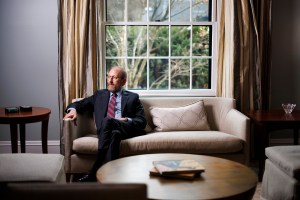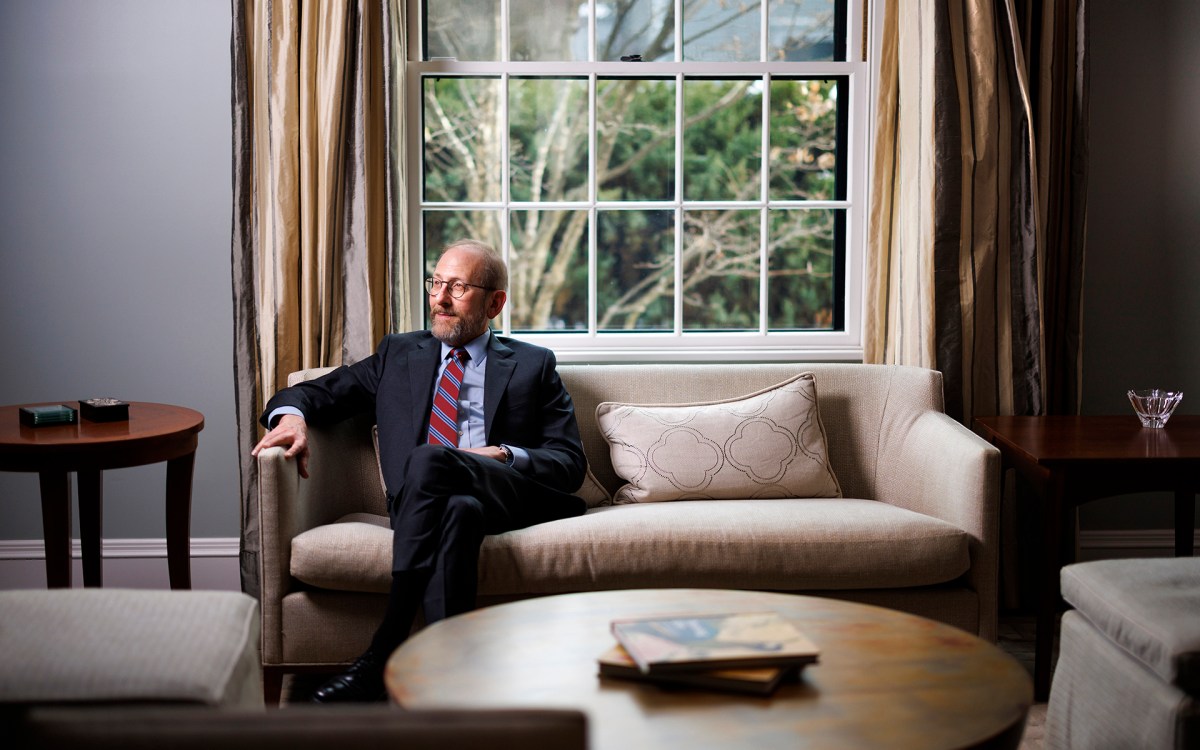HBS introduces Service Leadership Fellows Program
Harvard Business School (HBS) officials recently announced the formation of the Service Leadership Fellows Program to encourage students seeking to make a significant contribution to society early in their careers to apply for one- or two-year postgraduate service fellowships.
The HBS Service Leadership Fellows Program builds on a long tradition of support at the School for social initiatives, according to W. Carl Kester, senior associate dean and M.B.A. program chair. “Today’s introduction of the Service Leadership Fellows Program reflects a growing desire on the part of our students to be involved in the public and social sectors, as well as a desire on the part of key organizations around the world to avail themselves of the unique gifts and talents of HBS graduates,” Kester said.
“The School will subsidize the graduate’s salary so that is within the competitive range of offers that he or she would receive from for-profit businesses,” he explained. “Our aim is to make the program a tremendous learning experience for graduates and to make it affordable for sponsoring organizations.”
Bishop William Lawrence University Professor Michael E. Porter, whose research has included studies of the competitive advantages of inner cities, believes that the Service Leadership Fellows Program represents “a real opportunity” for the School. “Given the close intertwining today between business, government, and the nonprofit sectors, the School can have a major impact on society through this program,” he said.
“Not only do business leaders need to be more effective in their work on various community and social enterprises, but government and nonprofit organizations also need to develop better managerial and other skills,” Porter said. He also envisions a network of Service Fellow alumni that, in time, will play a key role in managing the overlapping relationships between business, government, and the nonprofit worlds.
V. Kasturi Rangan, the Eliot I. Snider and Family Professor of Business Administration, who is actively involved in studying the role of marketing in nonprofit organizations, sees the Service Fellows as “catalysts and change agents” who will have an impact long beyond their tenure. “The carryover effects of a program like this are fantastic,” he said. “The fellow brings a culture of change to nonprofit organizations that can be tremendously helpful. In addition, the program will also sensitize and change the fellows. When they go back to the corporate sector, fellows will bring a deep knowledge of the challenges facing community and society.”
Seven organizations have so far expressed interest in hiring an HBS Service Leadership Fellow. They include: The Initiative for a Competitive Inner City (ICIC), founded in 1994 and based on research by Porter; Lower Manhattan Redevelopment Corp., led by John C. Whitehead M.B.A. ’47, to revitalize and rebuild lower Manhattan and establish a memorial to victims of the World Trade Center attacks; the Mayor’s Office in Boston, as part of a team charged with assessing the city’s neighborhood economic development programs; Boston Community Capital, working on planning and implementing selected sector-wide initiatives at this leading community venture-capital organization; the Governor’s Office in Mississippi, as part of its effort to implement an economic development program based on clusters or geographic concentrations of firms, suppliers, service providers, research organizations and other institutions; International Rescue Committee (IRC), where the fellow will help the IRC assist people fleeing racial, religious, and ethnic persecution, as well as those uprooted by war and violence; and Comunidade Solidaria, Brazil’s largest anti-poverty organization, where the fellow will focus on strategic planning.




